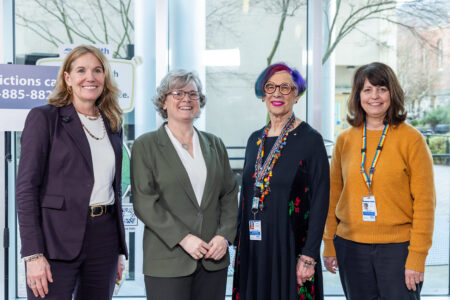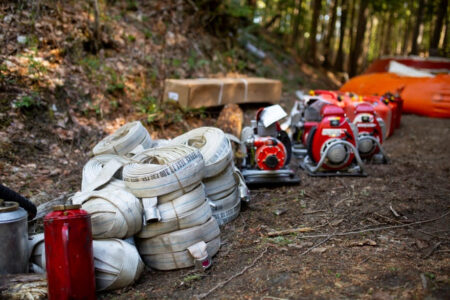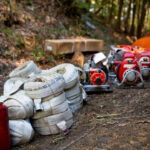Zaitsoff sets deadline for city
Photo: Area J RDCK director Gordon Zaitsoff
Regional District of Central Kootenay (RDCK) Area J director Gord Zaitsoff is squaring off with the City of Castlegar over the Celgar tax issue, after the pulp giant refused to pay its tax bill to the city, including the regional district portion of roughly $375,000.
Zaitsoff said Celgar’s delinquent account doesn’t get the city off the hook for paying the RDCK bill, likening the situation to a contractor/subcontractor relationship.
“The subcontractor still has to be paid (whether the client pays or not),” he said. “The municipality has a responsibility to pay the regional district requisition – it’s pretty straightforward.
“The City of Castlegar sits on some pretty good reserves,” he added. “The lack of funding will change (regional) operations if this isn’t settled by Friday, recreation being the number-one (cooperatively-funded department). The Complex and the aquatic centre will take a pretty big hit.”
Zaitsoff said he thinks the city was hoping to get the RDCK on side against Celgar, and, “it totally back-fired”.
“We have no reason to be upset with (Celgar parent company) Mercer International, because we basically have no dealings with them,” he said.
Zaitsoff said if the regional district’s portion of the tax bill is not paid by Aug. 1, he plans to recommend that the RDCK enter into a dialogue with Mercer International to have Celgar incorporate into the regional district, which he envisions requiring a tri-party negotiation between the RDCK, Mercer International and the provincial government.
He said this sort of arrangement could also incorporate other major industry in the region, such as Interfor’s sawmill and Teck Cominco’s Trail operation.
“Most rural communities are impacted by any sort of resource extraction,” he said. “The sad part of the whole thing is that these individuals (rural residents) receive no funding for roads, water supply … they don’t have any opportunity to get funding to improve infrastructure (surrounding) these resource extractions. What do the people there have for recourse?”
He said employees for all these primary industries come not just from Castlegar and Trail, but throughout the region, and rural residents would like to be a part of helping local industry become, or remain, viable.
“A lot of these industries would be more sympathetic to regional (tax payments),” he added. “(They) think this money is just going into a sinking pot for these municipalities. I think they’d like to see the money go to benefit the residents of the region.
“There’s merit to applying it from a regional perspective. It’s a new way of thinking.”


























Comments